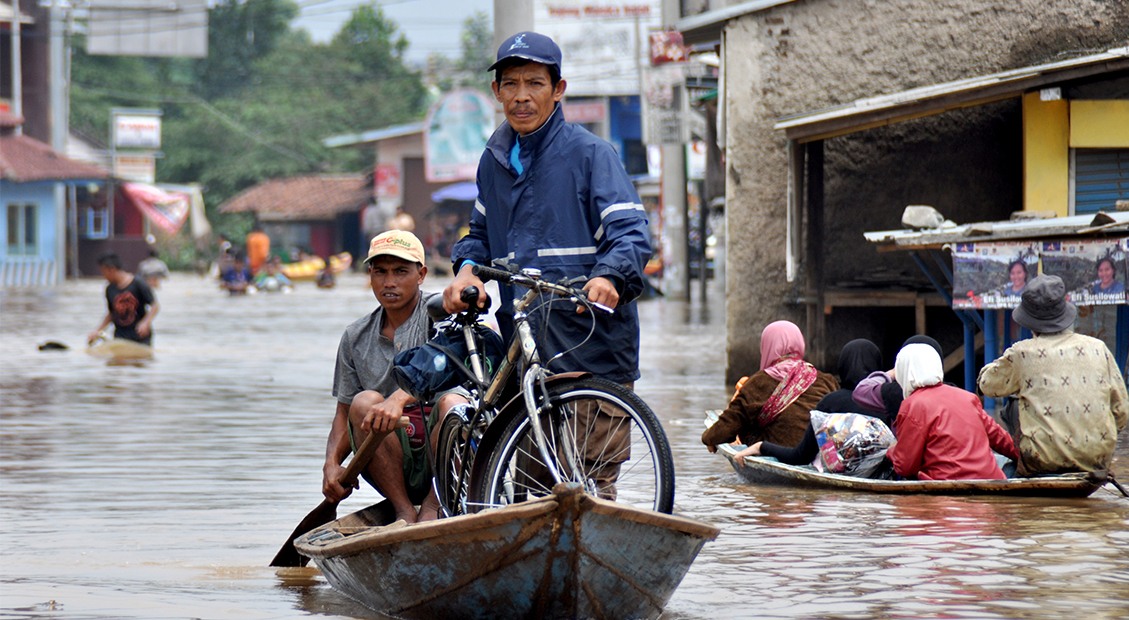Today’s global economy is led by Asia. It is not only the world’s most populous region, but also the fastest growing. Asia is expected to contribute 60 per cent of global growth in 2024 and within the area, the 10 members of Asean make up the beating heart of the region, driving connectivity within the region and with the global economy.
But this rapid growth comes at a cost. Asia is now the leading contributor to global greenhouse gas emissions. More critically, the region faces disproportionate risks from climate change. Asean nations including the Philippines, Myanmar and Thailand are ranked among the top 10 countries most severely affected by weather-related loss events and most vulnerable to climate risks.
Last year alone, Asean countries were hit by more than a thousand natural disasters. These affected 22.5 million people, displaced 1.8 million, and resulted in damages of more than US$600 million. Sadly, these disasters are just the beginning of the coming global climate crisis. We must recognize that many natural disasters are no longer natural, but are due to manmade climate change.
This stark reality underscores the urgent need for Asia to accelerate its efforts towards a green transition, to mitigate climate change and to conserve our planet’s living environment.
The transition towards net-zero industries represents not only a challenge but an opportunity. Asia’s future competitiveness depends on sustainability. Economies that embrace sustainable development will become the preferred destination for trade and investment. Looking ahead, secure and affordable renewable energy will be the key engine for economic development. On the supply side, this transition will create many industries and job opportunities.
However, as the theme of this year’s Asean-Asia Forum rightly identifies, global shifts are casting doubt over this ambition. Increasing risks of geo-economic fragmentation pose a significant challenge to achieving the green transition. Today, we are witnessing increased trade restrictions and anti-competitive measures, especially in strategic sectors such as semiconductors and renewables. Around 3,000 trade-restricting measures were imposed in 2023 alone, nearly three times the number in 2019.
As the strategic importance of green sectors becomes more evident, we also see more restrictive policies placed on these sectors and their supply chains, including import tariffs and domestic content requirements. Additionally, there is an increase in export restrictions to prevent key technology from flowing to others. Here, there is a real risk that the economic opportunity presented by the green transition becomes its own victim.
It is imperative that we overcome these tensions and work together to combat climate change. Supply chain disruptions increase the cost of the green transition for all of us and hinder progress towards our collective goals. We need avenues for trade, capital and knowledge to continue flowing. While it’s crucial to support the growth of local industries, we must avoid the pitfalls of protectionism that can hinder global cooperation and technology exchange. The key is to strike a judicious balance.
As we navigate the risks of fragmentation, we must continue to advocate strongly for globalization and multilateralism. Asean economies have a deep history of economic collaboration, and many are today highly connected by trade and plugged into global supply chains. Encouragingly, there are now more cross-border sales and transmission of renewable energy in the region, and a more integrated Asean grid is in the works. As Asean is demonstrating, multilateral cooperation presents the most efficient and effective approach to solve climate change. Thus, we must work collaboratively to reduce trade frictions and invest in regional connectivity, especially in Asia.
More than ever, multilateral development banks (MDB) have a pivotal role to play in facilitating international cooperation and directing resources to tackle these urgent global challenges. The Asian Infrastructure Investment Bank (AIIB) is heeding the call. We are firmly committed to financing infrastructure for tomorrow and work every day to promote sustainable development and regional cooperation. I am proud to say that 60 per cent of our financing in 2023 was directed towards green infrastructure, and 23 per cent was invested in cross-border connectivity.
Furthermore, AIIB has sought to drive cooperation across the MDB system. The organization co-financed a US$230 million pumped hydropower project in Indonesia with the World Bank, and with the Asian Development Bank, a US$150 million cross-border wind power project in Laos supplying green energy to Vietnam. Last year, we also provided a US$1 billion guarantee facility for the World Bank, increasing lending capacity for both AIIB and the World Bank.
In July 2023, we began to align all our financing activities with the Paris Agreement. Our Climate Action Plan further committed to using our resources, expertise and partnerships to help our members both mitigate and adapt to the climate change crisis. By 2030, we expect our cumulative climate finance to reach US$50 billion.
In 2024, we introduced an instrument – Climate-Focused Policy-Based Financing. Moving beyond project-by-project lending, this new instrument enables AIIB to support members to undertake climate-positive policy reforms and scale up climate finance. Our policy-based financing will put specific emphasis on policy reforms that are conducive to crowding in private-sector investments. Working with other MDBs, we have already approved a US$400 million programme to support Bangladesh’s efforts in mainstreaming climate change adaptation and mitigation.
Finally, at the most recent meeting of MDB heads, AIIB – along with nine other major MDBs – committed to concrete and actionable deliverables in several critical areas: scaling up MDB financing capacity; boosting joint action on climate change; strengthening country-level collaboration and co-financing; and importantly, catalyzing private-sector mobilization.
Just as Asean’s 10 member countries have demonstrated the organizing power of multilateralism, MDBs must continue to promote regional interconnectivity in this time of rising geo-economic fragmentation. Importantly, MDBs must also deepen our collaboration to address the spectre of climate challenges ahead. Only by working together as a system can we increase our climate finance at the speed and scale required to finance humanity’s moonshot towards net zero.
This was published in The Business Times on Aug 2, 2024.


